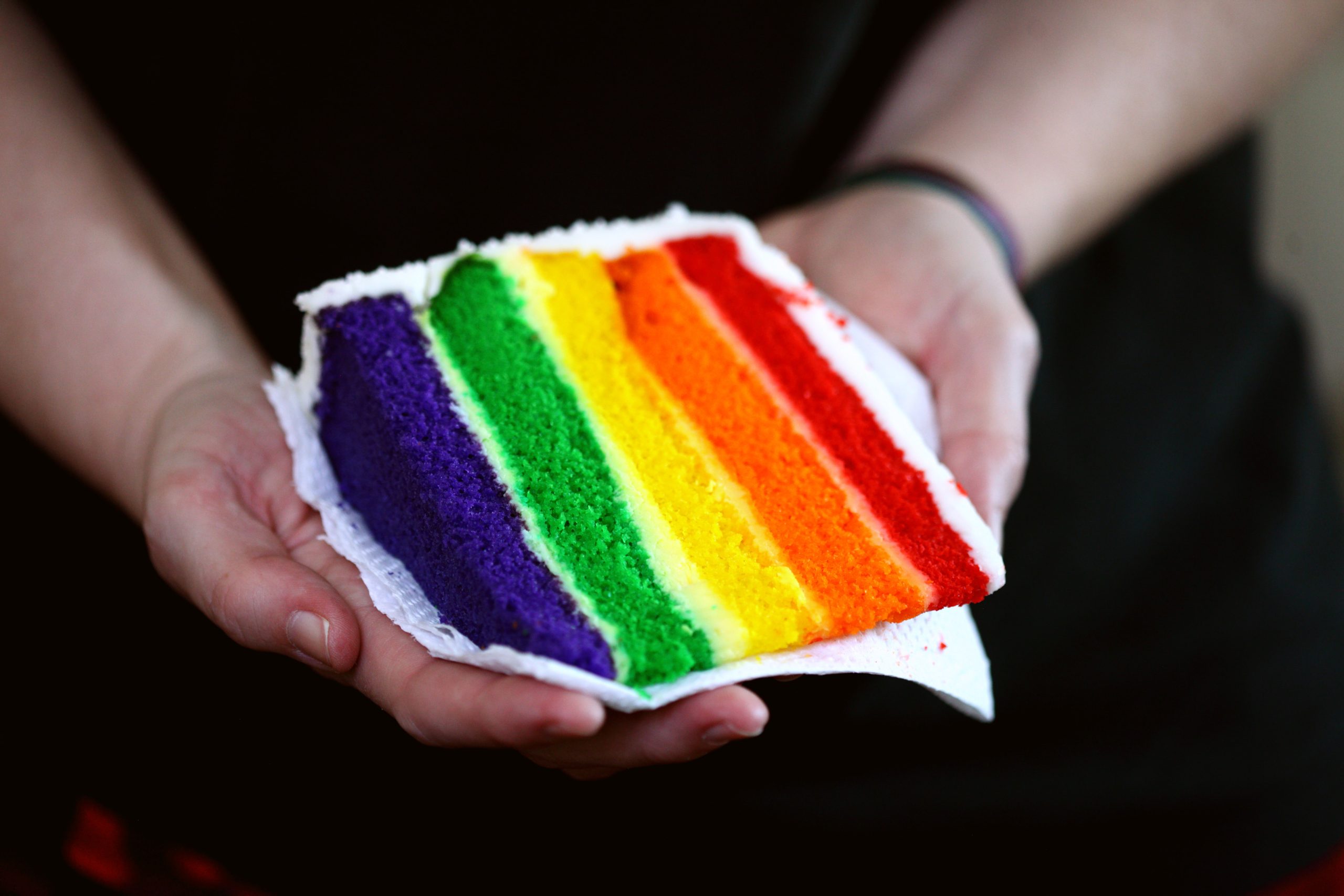For too long, members of the LGBTQ community have had to hide out in fear for their livelihoods and lives. The constant fear of being rejected by friends and loved ones, as well as by society, has led many of them to remain in the proverbial “closet.”
This means many people have to hide their true selves from those who should be closest to them. And National Coming Out Day challenges that age-old standard, encouraging LGBTQ people everywhere to proudly come forward and claim who they are, thereby taking back their lives and their pride. Oct. 11, 2022, was the 34th National Coming Out Day, a day for lesbian, bisexual, gay, transgender, queer, intersex and asexual (LGBTQ+ or LGBTQIA+) people to celebrate who they are, with events and rallies, and to raise awareness of their ongoing struggle for equal rights and acceptance.
The term “coming out” was historically used by gay men to describe their debut into the gay community and culture at drag balls, according to The Week and George Chauncey’s “Gay New York.” The idea was borrowed from debutante balls when young, wealthy women would make their first appearance in society. The term “coming out” wasn’t really used until the ’60s, The Week reported, and it was used to describe someone coming out of hiding to be who they are.
The Human Rights Campaign (HRC), the nation’s largest lesbian, gay, bisexual, transgender, queer and more (LGBTQ+) civil rights organization, has chosen an annual theme surrounding the event for the past 15 years. The earliest theme was set in 1999, titled “Come Out To Congress.” Last year’s theme was “Born to Shine.” You can find more history about National Coming Out Day from CouponBirds.
If you are a member of the LGBTQ community, you should know exactly what to do on this day to stand up for your rights. If you have no intention of coming out, please also respect the LGBTQ community, support and understand them, and create an accepting environment for those who choose to come out. Whether you’re LGBTQ or not, here’s what you should know about National Coming Out Day.
Why is National Coming Out Day important?
Coming out is a very personal decision and can be a very emotional time in a person’s life. This process involves self-acceptance of one’s identity, which can take years to develop given homophobia and transphobia.
Developing self-acceptance and coming out to others are both very brave acts, as individuals may be ostracized by family, friends or colleagues because of their sexual or gender minority status. For some people, coming out is no longer a big deal; for others, coming out remains a huge challenge. Coming out means living openly and expressing your sexuality and gender so that others can see it, too. A genuine fear of discrimination, bullying or judgment can cause LGBTQ people to “hide in the closet” and struggle with anxiety while trying to be themselves.
Today, many people will choose National Coming Out Day to reveal their identity as gay, lesbian, bisexual, transgender and/or queer to others.
The Human Rights Commission said the day “reminds us that one of our most fundamental tools is the power of coming out.” After the first pandemic quarantine year, experts say it’s more important than ever to create a safe outdoor space for people. “It’s really about finding your own truth,” Dennis Astorino said. She works at the LGBT Center in Cleveland and identifies as a lesbian.
What can you do for the LGBTQ community?
1. Contribute to Human Rights Campaign
The organization not only sponsors National Coming Out Day but also works to fight for LGBTQ+ equality in many ways. This is a cause worth supporting!
2. Validate the person
If someone comes out to you, it’s because they trust you and value their relationship with you. Be sure to emphasize the connection you have with the person and show that the connection does not change because you know their identity, especially if the person is your child or a family member. LGBTQ youth who are rejected by their families and communities have higher rates of mental health problems, substance use, school problems and even self-harm and suicide. Recognizing this person and validating them is critical to the well-being of LGBTQ individuals.
3. Support someone’s coming out
There’s no way around it — coming out can be a difficult experience. Accept those who choose to share this part of your life with you and become their ally. If you yourself are hesitant to share an important part of your identity, consider taking advantage of the extra love on National Coming Out Day and making the leap if the time is right for you.
4. Wear a symbol of pride to raise awareness
For those who feel discriminated against or alone, the symbolic representation of the different groups encompassed by the acronym “LGBTQ+” is very welcome. Raise awareness of these campaigns by wearing a badge or waving a flag, or posting your support on a social media platform!
In addition, you can try the following ways to help LGBTQ people:
Investigate LGBTQ+ resources to learn more about this community and its history. Point out where you can find help in your workplace for people who struggle with identity or need to chat. If you don’t have a network in your workplace, try to build one so people can have a support system. If you have a network, ask them for suggestions, plans, and ideas for National Coming Out Day.
Whether you identify as LGBTQ+ or an LGBTQ+ ally, celebrating National Coming Out Day is an important way to raise the visibility of your community. It’s also a significant event to remind you of the ongoing struggle all LGBTQ+ people face to be themselves and to remind you of the joy and pride of being open about being LGBTQ community.








